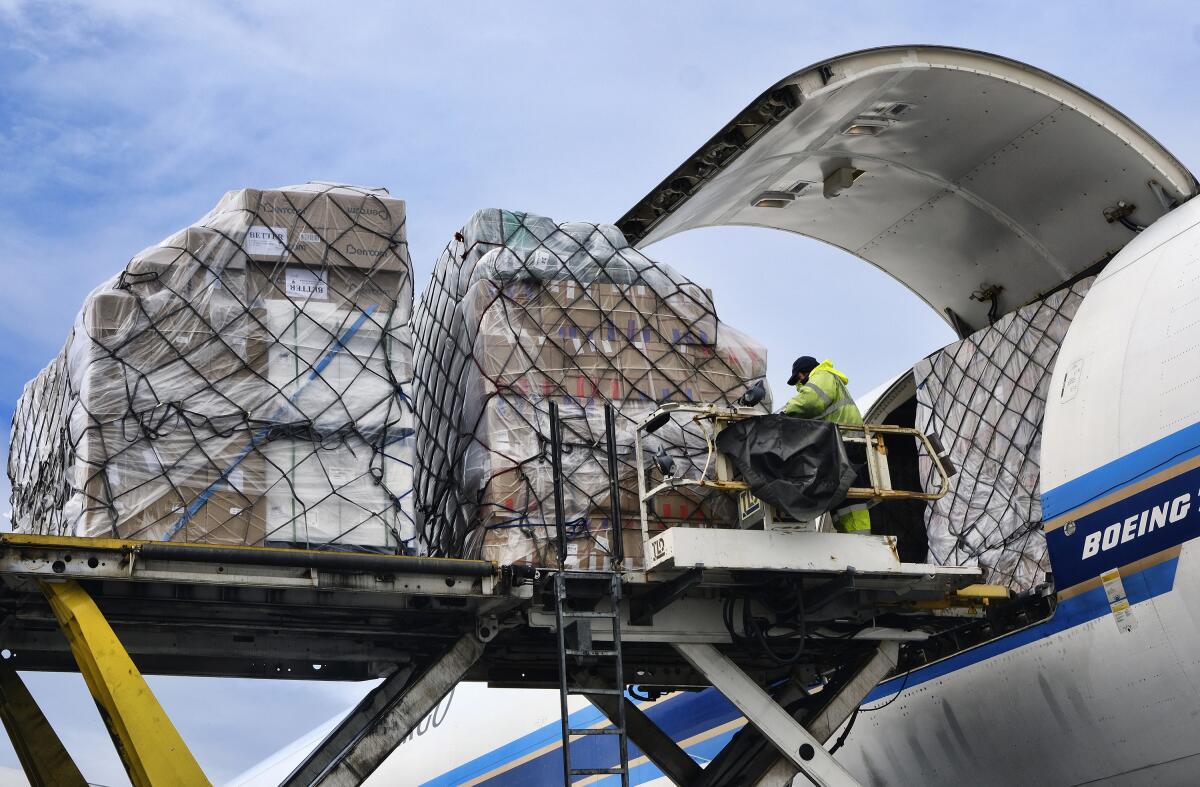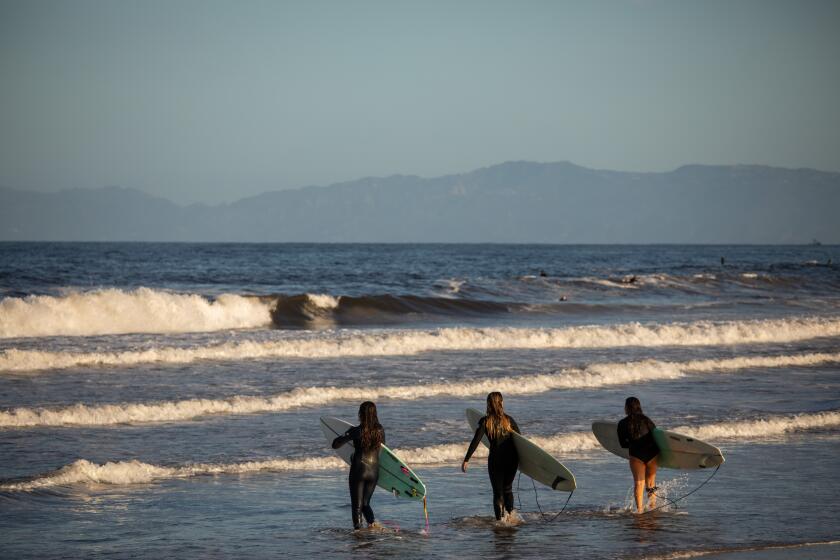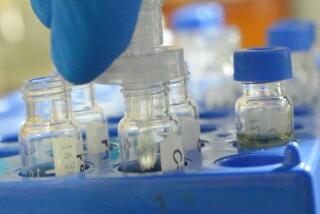California’s $1-billion masks deal with Chinese automaker faces uncertainty. Here’s why

- Share via
Federal regulators offered new details Wednesday about problems that have delayed a $1-billion deal between California and a Chinese automaker for respirators, saying they denied certification of the masks after inspections of the company’s factories in China and a review of critical documents belonging to the project.
In a statement to The Times, the National Institute for Occupational Safety and Health said it notified electric car maker BYD on May 4 that on-site visits to the company’s manufacturing and production facilities in China had resulted in a rating of “Not Acceptable.” The agency also said its “review of documentation provided to NIOSH for the design, manufacturing and quality inspection of the device was concerning.”
NIOSH said it denied BYD’s bid for federal approval of its N95 masks “based on a number of factors” but declined to elaborate, saying that information is confidential under federal rules.
The company has submitted a total of four applications of N95 respirators, according to a letter from the regulatory agency. Three of the applications were denied and a fourth was withdrawn, a NIOSH official told The Times.
There is no BYD application for N95 approval currently pending, and the company hasn’t yet submitted another application to NIOSH, agency officials said, raising questions over whether the company will be able to meet a May 31 contract deadline to obtain the certification.
California has agreed to pay $990 million to the company for 300 million N95 protective masks at a cost of $3.30 apiece. The price is considered high for N95 masks — the city of Los Angeles recently inked a deal with an American manufacturer for N95s at less than a dollar a piece — but BYD promised to deliver the masks more quickly.
Coronavirus: Health officials in L.A. County say parts of the stay-at-home order could last well into summer.
Frank Girardot, a BYD spokesman, said the company expected to “resubmit, if not today then by the end of this week,” and that the only issues flagged by federal regulators were minor changes to engineering drawings that would be “easily fixed.”
“They have no issue with our quality or production lines,” Girardot said, adding that the masks had passed the agency’s laboratory testing.
The new details add to the uncertainty surrounding California’s massive deal with the Chinese company. The masks are highly coveted by frontline workers in the novel coronavirus pandemic because they filter 95% of particles, providing crucial protection to nurses and other essential workers.
The masks have been notoriously hard to come by, and nurses have staged protests demanding the gear before they’re forced to interact with patients who test positive for COVID-19, the disease caused by the virus.
BYD’s contract with the state had been shrouded in secrecy since it was signed in early April. The governor’s office initially refused to disclose the contract to lawmakers and journalists — even though government contracts are public under state law — citing concerns that the masks might somehow be seized if that information were released.
The state relented earlier this month amid mounting pressure for more details about the deal. The contract showed that BYD had missed its initial April 30 deadline to obtain NIOSH certification of the masks, and needed to reimburse the state half its nearly $500-million upfront payment. The state agreed to extend the deadline for certification to the end of this month.
Despite the setbacks, Brian Ferguson, a spokesman with the California Governor’s Office of Emergency Services, said the BYD deal “has already proven to be successful” because the company had delivered 18 million surgical masks, which don’t offer the same degree of protection as the N95 but have still “been key to the state’s ability to reopen the economy and protect public health and safety.”
Ferguson said state officials “remain optimistic” that BYD will obtain NIOSH certification of the company’s N95.
“Should the contractor fail to meet that high standard, we have built in strong provisions to protect the state,” Ferguson said.
Dan Glucksman, director of government affairs for the International Safety Equipment Assn., or ISEA, the trade organization for personal protective equipment and technologies, said he could not comment specifically on the BYD mask deal.
But he noted that N95 masks submitted to NIOSH for certification must undergo rigorous testing for filtration efficiency, breathing resistance and multiple other factors. NIOSH also reviews design elements and the components used in making the masks, as well as the manufacturer’s own test results and a raft of other documentation it must submit.
“All of this is factored into the final certification,” Glucksman said, noting that “paperwork aspects are critical” to securing NIOSH approval for N95 respirators.
“They are simple, disposable items, but there is a lot of science and engineering, and a lot of industrial quality control, that goes into them,” he said.
One issue that emerged with Chinese-made masks, generally, involves how they are held in place, Glucksman said. Many are turning up with ear loops, rather than elastic bands. While federal regulations do not mandate elastic bands, they generally make for a tighter fit — and better protection, he said.
It is unclear if that is an issue with BYD masks.
Charles Johnson, ISEA president, said the COVID-19 crisis also has sparked a “proliferation of fraudulent masks that have been mislabeled one way or another,” which has complicated the task of ensuring that personal protective gear meets standards.
Some masks bear FDA labels, which are never used, Johnson said, or claim to be approved for children, “for which there is no such thing.” Others “completely fail to meet the provision of the standards to which they attest,” he said.
“It is a major concern,” Johnson said. “The FDA has revoked some prior approvals for some Chinese masks because of worries that those masks are not meeting the standards for which they attest.”
More to Read
Sign up for Essential California
The most important California stories and recommendations in your inbox every morning.
You may occasionally receive promotional content from the Los Angeles Times.

















